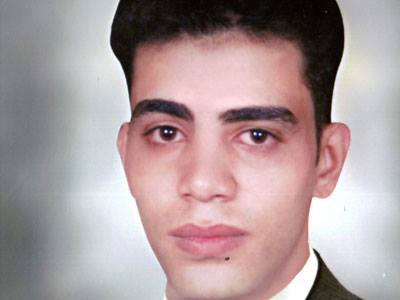Mohamed Metwally Awad
Mohamed lived in the Bolak El Dakroor area of Cairo. He put off marriage and children to take care of his younger brother and widowed sister after his parents passed away leaving him head of the household. It wasn’t easy finding an apartment or a job. He dropped out of school at 15 and got work as a shoe repairer to pay the bills.
His brother, Awad, remembers the day Mohamed was killed: “On the Day of Rage Egypt was boiling over. Mohammed went to pray Jumma at a nearby mosque in our neighbourhood, but security forces blocked the mosque because it was next to a church. He angrily said when he returned home, “They want to differentiate between Christians and Muslims in our country! this country needs reform!”
Later, Mohamed and his brother went together to pray at a different mosque and after went to a coffee shop to follow the demonstrations on TV. Demonstrations were everywhere and security forces were brutal in dealing with protesters.
Mohamed was angry at what he saw. He stood up and to told those around him, “The women and children in Tahrir Square are no more patriotic than us.” He then left the cafe for Tahrir Square followed by his brother and some others. Upon reaching the demonstrations they were tear-gassed and Mohamed was shot in the head by the police and fell to the ground. His brother rushed him to a nearby hospital, but they wouldn’t admit him. He then took him to Al-kasr al-‘Eini hospital where doctors tried to remove the bullet from his brain but were unable. Muhammad spent four days in a coma and on February 2nd he passed away.
“Muhammad was the big brother who supported me and my widowed sister. He even helped the disabled. He was a real man,” his brother said.




